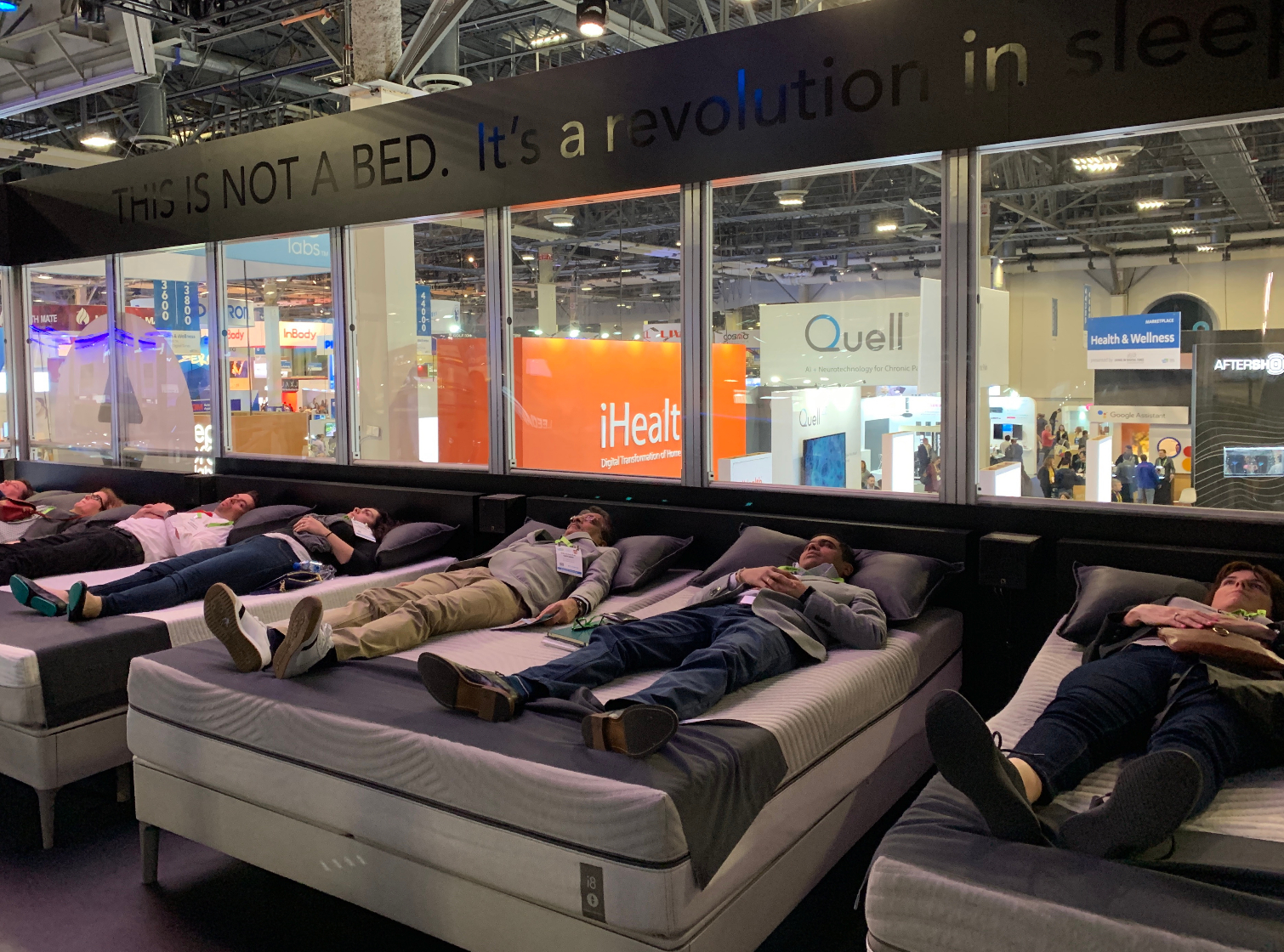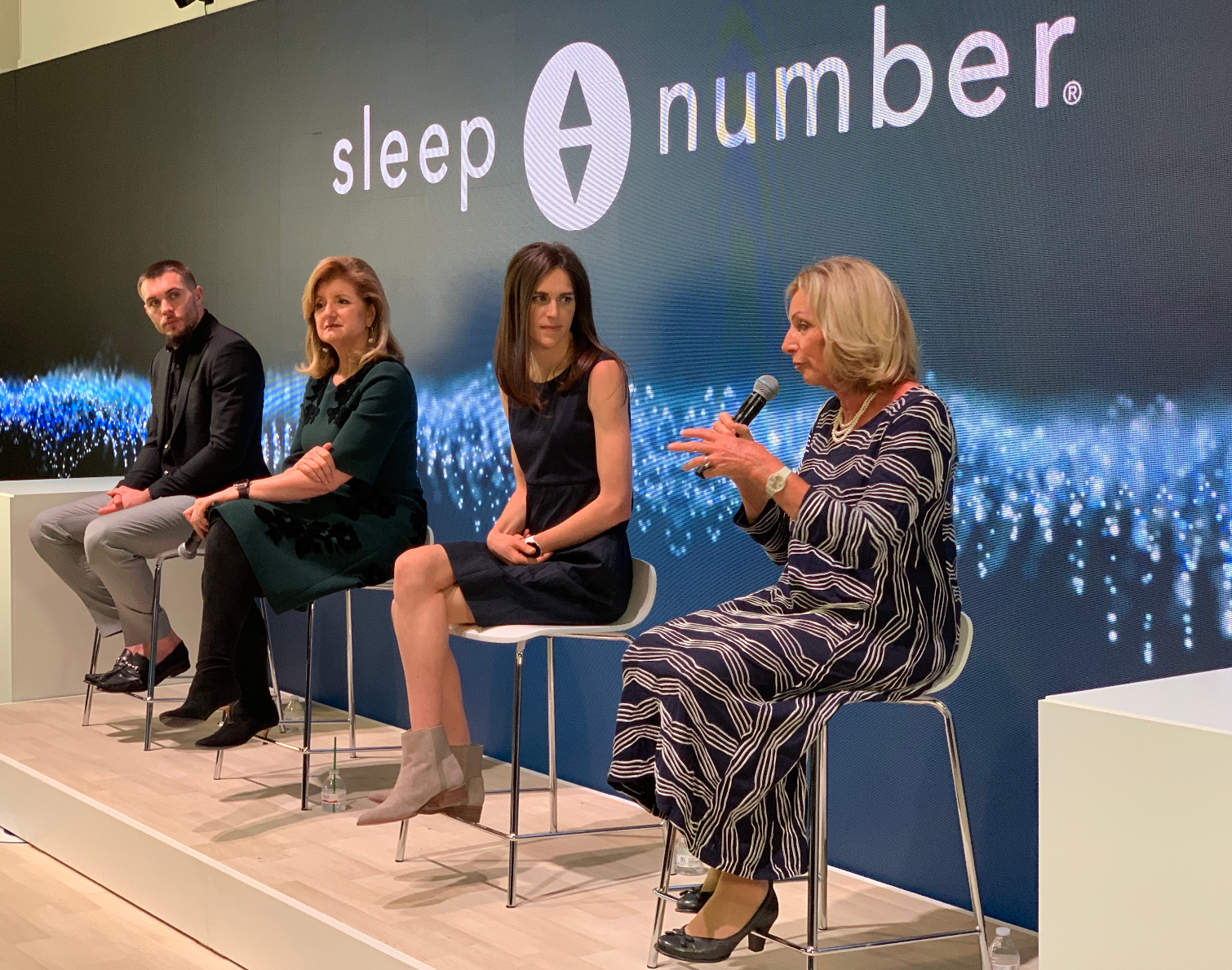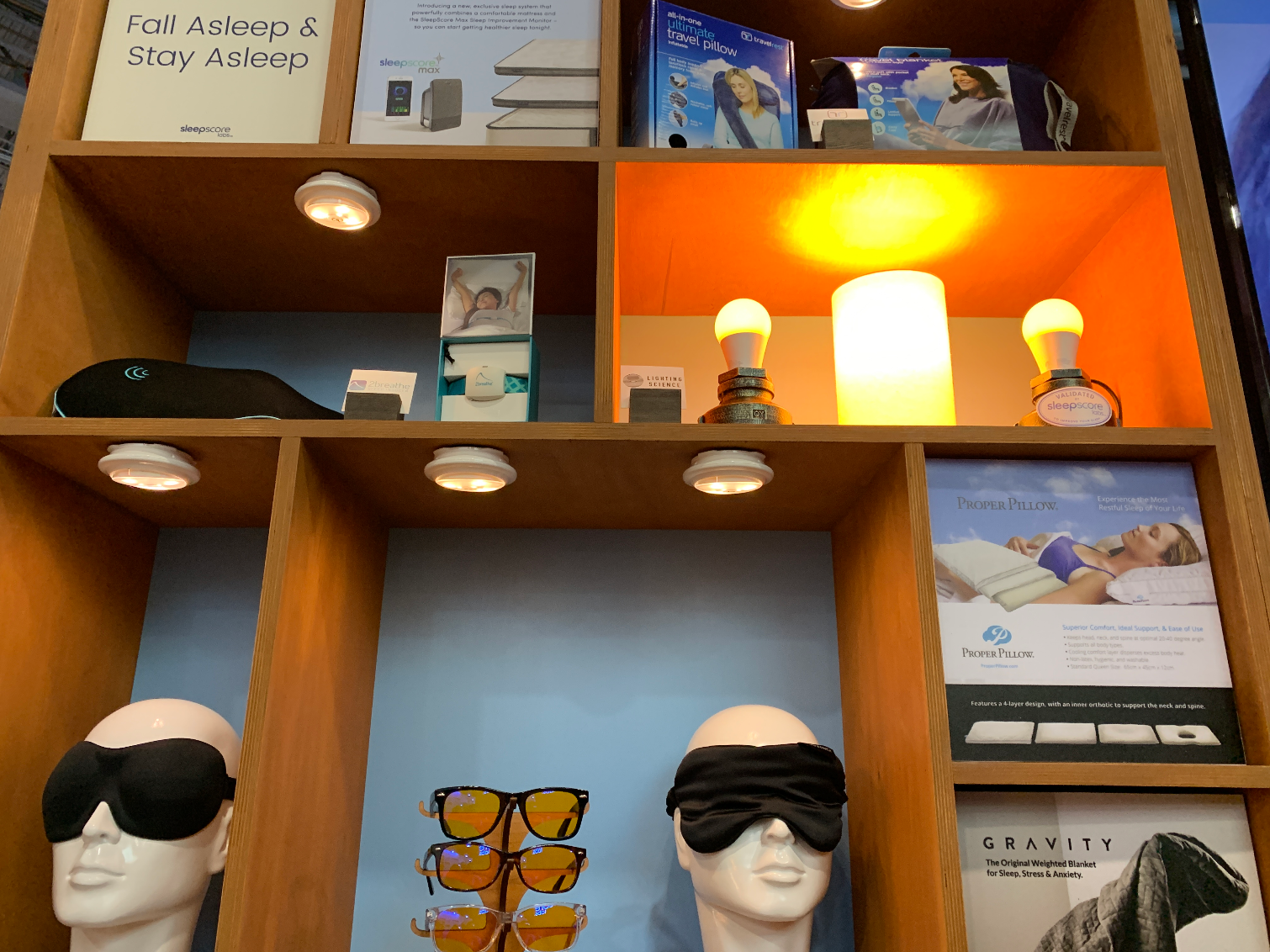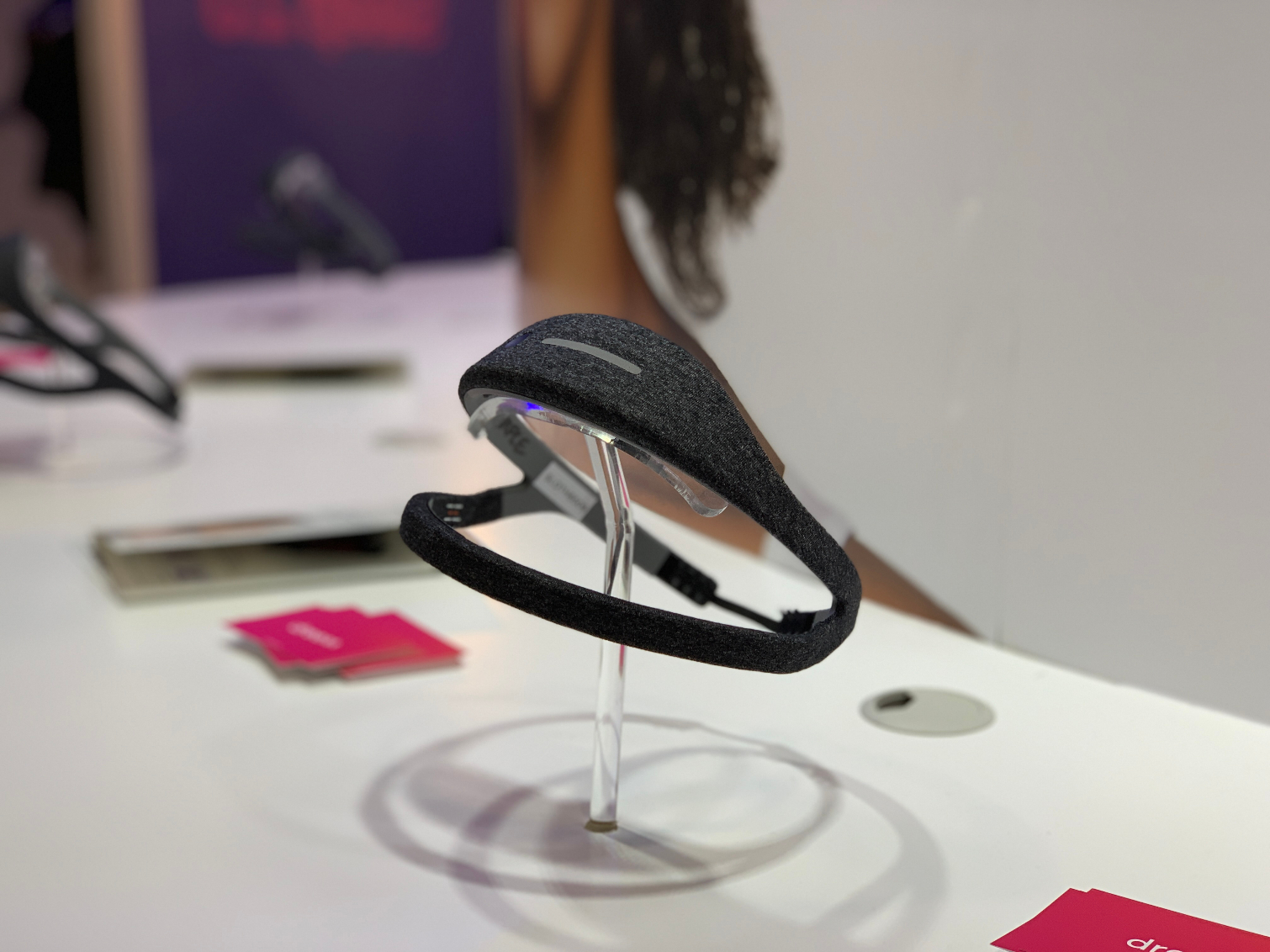Arianna Huffington's Secret to A Good Night’s Sleep is A High-Tech Mattress (and No Phone)
Expensive brain-training headbands and sleep-tracking mattresses are competing to solve your insomnia, but the real cure may be surprisingly low-tech.
Here at Tom’s Guide our expert editors are committed to bringing you the best news, reviews and guides to help you stay informed and ahead of the curve!
You are now subscribed
Your newsletter sign-up was successful
Want to add more newsletters?

Daily (Mon-Sun)
Tom's Guide Daily
Sign up to get the latest updates on all of your favorite content! From cutting-edge tech news and the hottest streaming buzz to unbeatable deals on the best products and in-depth reviews, we’ve got you covered.

Weekly on Thursday
Tom's AI Guide
Be AI savvy with your weekly newsletter summing up all the biggest AI news you need to know. Plus, analysis from our AI editor and tips on how to use the latest AI tools!

Weekly on Friday
Tom's iGuide
Unlock the vast world of Apple news straight to your inbox. With coverage on everything from exciting product launches to essential software updates, this is your go-to source for the latest updates on all the best Apple content.

Weekly on Monday
Tom's Streaming Guide
Our weekly newsletter is expertly crafted to immerse you in the world of streaming. Stay updated on the latest releases and our top recommendations across your favorite streaming platforms.
Join the club
Get full access to premium articles, exclusive features and a growing list of member rewards.
LAS VEGAS — Arianna Huffington’s bedroom is a no-smartphone zone. The Huffington Post co-founder and and Thrive Global CEO is a sleep evangelist, and one of her top tips for getting better sleep is to charge your phone in a separate room.
But Huffington has in recent months adopted a pricier solution: A Sleep Number smart mattress that tracks your sleep and scores each night’s rest with a numerical rating.

Huffington isn’t opposed to all technology in the bedroom, especially a sleep-tracking mattress that comes with foot warmers and tilts up and down with a remote (like a hospital bed, but more comfortable). She’s not even against wearing a device to bed. She believes smartphones specifically are the problem.
“There’s something very important about getting data about your sleep and getting data about your body: your heart rate, your blood pressure,” Huffington said. “To me, what is very important is not to do that through your phone. If measuring these things requires keeping your phone by your bed, that’s not the ultimate solution. Your phone is part of every problem, every project, everything you’re dealing with during the day. To get a good night’s sleep, you need to disconnect from that.”

Putting your phone in another room is a free way to declutter your mind and get better rest. But if you have bigger problems — and a lot of money — tech companies are making gadgets to solve them. Sleep Number's smart bed is one of the more expensive options, ranging from $1,000 for the base model all the way to $4,400 for ambient lights and foot warmers.
The CES show floor this year had an entire section devoted to sleep tech. There were sensor-packed sleep-tracking bands you put beneath your sheets to track movement, bedside devices that use radio waves to track your breathing, headbands that lull you to sleep with pink noise and relaxing music, other headbands that train your brain to produce sleep-inducing waves — everywhere I looked, another gadget promised to help figure out why we don’t sleep well and then fix it.
SleepScore Labs, which makes an app and a device that use echolocation to monitor your breathing and movement, uses its data to recommend a variety of products that could solve your sleep problems. The app can tell if you’re grinding your teeth or snoring, if you toss and turn or if you just don’t sleep long enough. Then it helpfully recommends a product that might cure your problems, which you can buy in the SleepScore store. Products range from weighted blankets to glasses that remove the blue light from the screen you inevitably find yourself staring at before bed (unless you’re Arianna Huffington).
Get instant access to breaking news, the hottest reviews, great deals and helpful tips.

If blankets and special glasses won’t do the trick, everyone and their mothers are making sleep headbands packed with sensors that measure brain activity and breathing and movement and everything else you can measure while asleep. Dreem, a $499 headband that can tell you what sleep stages you’re in, sports six EEG sensors for measuring brain waves, and recommends programs you can follow to help you figure out why you having trouble sleeping.
Another $500 headband, Urgo Night, is packed with electrodes to measure your electrical brain activity. The company says if you wear the band 20 minutes a day, three days a week, you can train your brain to produce more sensiromotor rhythm, a type of brain wave that combats anxiety and promotes better sleep. Urgo Night is unique in that you wear it during the day, which is a little weird — I would never remember to stick to a schedule like that, but your mileage may vary.

Sleep Number has an advantage, because everyone needs a mattress (even if you don’t want or can’t afford to spend thousands of dollars on one). Sticking sensors inside the fabric to track sleep is frictionless, whereas wearing a brain-training headband would take some getting used to.
But all of these solutions are expensive, and none of them are guaranteed to work. Huffington uses a Sleep Number bed now, but her top sleep tips are surprisingly low-tech: stick to a normal bedtime, make your bedroom dark and cool, and keep your phone out of it.
Maybe high-tech solutions will work for some people. But brain wave-measuring headbands won’t fix the root of our collective anxiety: health issues, low wages, unpredictable work schedules, student loan debt, having children, the list goes on. Maybe tech companies could tackle those issues, too.
But the mattress is pretty magical.
Photos: Tom's Guide
Caitlin is a Senior editor for Gizmodo. She has also worked on Tom's Guide, Macworld, PCWorld and the Las Vegas Review-Journal. When she's not testing out the latest devices, you can find her running around the streets of Los Angeles, putting in morning miles or searching for the best tacos.
 Club Benefits
Club Benefits










